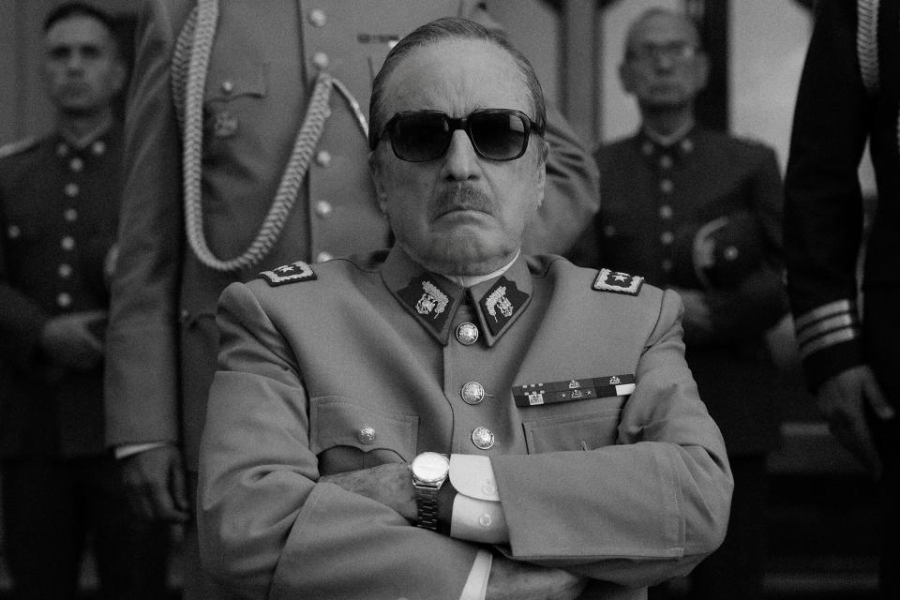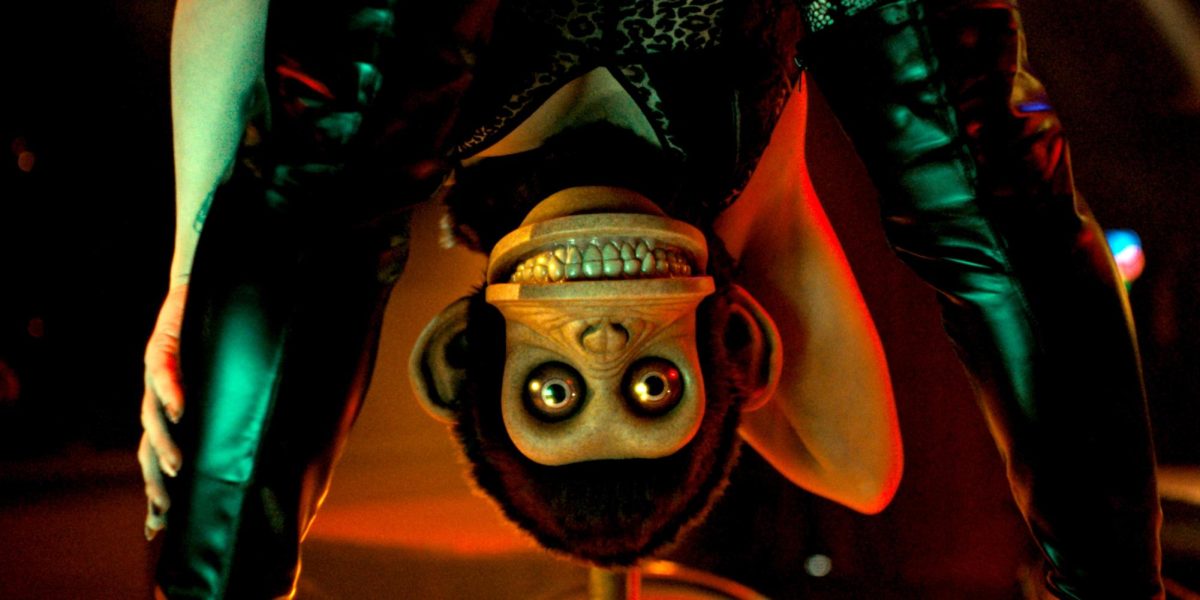Director Pablo Larrain has made a name for himself creating fairy tale-like reimaginings of real-life political figures, including Princess Diana of Wales and Jackie Kennedy. Now, in glorious black and white photography, Larrain offers a new take on brutal Chilean dictator Augusto Pinochet, known as “El Conde.” In a turn of elaborate magical realism, the former South American president is revealed to have been a vampire, hundreds of years old, who has spent his years squashing revolutions and enforcing a strict authoritarian ideology. Set in the mid-1990s, the count has decided it is time for him to die, but not without one final meal.
The picture — which premiered at the 2023 Venice Film Festival (and won the Best Screenplay prize) — after a long and arduous introduction, is mostly centered on the vampire’s bloody early years, largely focusing on the wife and children of Pinochet, who have come to an agreement that they are going to milk their old man dry and take as much for themselves as they can. This, along with Pincohet’s own personal journey to accepting the end of his life, is interrupted by a nun (Paula Luchsinger) disguised as an inconspicuous estate preparation agent who is tasked with sending the devil that lives inside El Conde back to hell. The jumble of storylines stuffed into the 110-minute runtime makes for a consistently heart-pounding but perhaps overly dense dramedy.
The cinematography, captured entirely in black and white by veteran director of photography Edward Lachman, allows the audience to be immersed into a rich, textured fairy tale world, inhabited by the vampire anti-revolutionary at the center of the story.
The grainy, expressionistic framing and overall production design show a clear reverence for F.W. Murnau’s “Nosferatu,” one of the original vampire pictures of early cinema and a giant moment for German filmmaking.
This homage to older styles of filmmaking, and the freedom to use less naturalistic imagery, allows the filmmakers to shoot for the stars in the moments of true fantasy, although they might be few and far between. These moments feel truly magical and far more emphasized in their execution, as the effort is not bound to being grounded in the viewers’ own world.
The dry wit, staunch conservative satire, ne’er-do-well, greedy children of a successful patriarch, and punchy, intellectual dialogue all come together to create a monochromatic and magical world that ends up resembling a fantasy rendering of HBO’s “Succession.” Both narratives focusing on the battle of family and suspiciously motivated employees, following the retirement of an iron-fisted patriarch, certainly do sound familiar. This comparison should come across as the utmost of compliments. What Larrain and co-writer Guillermo Calderón accomplish by infusing the stark melodrama with perfectly placed moments of sass, sarcasm or mischief is a serious feat that can rarely be accomplished, especially with as much grace as it has.
The screenplay itself is one to be admired, capable of balancing the many layers of intrigue and secrecy among the wide ensemble. But some characters and storylines are served better than others. Several interesting moments break into a sprint in an attempt to develop side characters, such as the children (who are all left unnamed) or Fyodor (Alfredo Castro), Pinochet’s right-hand man turned vampire-butler, are often left in the dust for the sake of building to the — admittedly very grand — finale.
This makes the potential emotional connection to these characters a bit more difficult, since the only person that the audience has spent enough time with to truly care about is the man often described in the script as “the devil,” Pinochet himself. This works somewhat counterproductively to the film’s efforts to make the ensemble equally as conniving and despicable as the general, as many of the side characters come across as more pitiful or bumbling than anything else.
The biggest problem arises with the children who all have one central motivation, making them function as more of a hive rather than individuals unto themselves. This weakens the potential for a strong emotional finale for their story. As the film goes on and viewers still know very little about them, the impact of their success or failure becomes less and less an outcome awaited with bated breath. Rather, it shifts into being more of an inevitable ending, solely needed to advance the arcs of the characters actually worth caring about.
This potential over-complication of the first two acts, however, is quickly resolved by the explosive final 30 minutes of the film, offering the most intrigue, most twists and most glorious rear-projection flying sequences of the year, the decade, or 21st century, even. The climactic sequence of the film offers repentance for testing the audience’s patience through the beginning, and unbeknownst to viewers, reveals its true intentions that it had been hinting at since the opening shots.




















